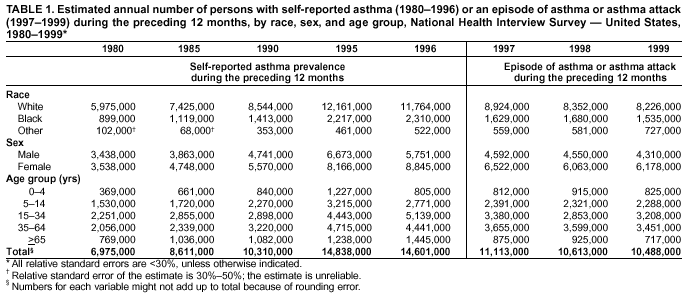
Posted on 08/16/2006 8:25:06 AM PDT by Moonman62
UC Davis researchers today described in unprecedented biochemical and anatomical detail how cigarette smoke damages the lungs of unborn and newborn children.
The findings illustrate with increased urgency the dangers that smokers' families and friends face, said UC Davis Professor Kent Pinkerton, and should give family doctors helpful new insight into the precise hidden physical changes occurring in their young patients' lungs.
"Smoke exposure causes significant damage and lasting consequences in newborns," Pinkerton said. "This research has a message for every parent: Do not smoke or breathe secondhand smoke while you are pregnant. Do not let your children breathe secondhand smoke after they are born."
Pinkerton added that the results from this study are further proof that secondhand smoke's effects on children are not minor, temporary or reversible. "This is the missed message about secondhand smoke and children," he said. "Parents need to understand that these effects will not go away. If children do not grow healthy lungs when they are supposed to, they will likely never recover. The process is not forgiving and the children are not going to be able to make up this loss later in life."
The 2006 Surgeon General's Report on secondhand smoke estimates that more than 126 million residents of the United States age 3 or older are exposed to secondhand smoke. Among children younger than 18 years of age, an estimated 22 percent are exposed to secondhand smoke in their home; estimates range from 11.7 percent in Utah to 34.2 percent in Kentucky.
To get the word out to parents about the dangers of secondhand smoke, two states (Arkansas and Louisiana) have made it illegal to smoke in a car with young passengers. In California, a similar bill, AB 379, is currently under consideration in the state Legislature.
The new UC Davis research is reported in today's issue of the American Journal of Respiratory and Critical Care Medicine. The lead author is Cai-Yun Zhong, a former UC Davis graduate student now working at ArQule Biomedical Institute in Boston; the co-authors are Ya Mei Zhou, also a former UC Davis graduate student and now investigating breast cancer signaling pathways at Buck Research Institute in Novato, Calif.; Jesse Joad, a UC Davis pediatrician who studies children's lung development and cares for sick children in the UC Davis Health System; and Pinkerton, a UC Davis professor of pediatric medicine and director of the UC Davis Center for Health and the Environment.
The Pinkerton research group is one of the few groups in the nation capable of studying the effects of environmental contaminants on unborn and newborn animals. Their 15 years of studies on mice and rats have yielded greater understanding of how air pollution affects human lungs and health through experiments that attempt to reproduce true exposure conditions to environmental air pollutants.
The new study was done with rhesus macaque monkeys, in order to obtain the best possible understanding of what happens in people. Pregnant macaques were exposed to smoke levels equal to those that a pregnant woman would breathe if someone in her home or workplace smoked. Newborn macaques were exposed to secondhand smoke levels similar to those a human baby would breathe if it was cared for by a moderate-to-heavy smoker.
What the researchers found is that environmental tobacco smoke wreaks havoc in babies at a critical time in the development of lungs -- when millions of tiny cells called alveoli (pronounced al-VEE-o-lye) are being formed.
Alveoli are the place where oxygen passes from the lungs into the bloodstream. Human infants are born with only about one-fifth of the 300 million alveoli they will need as adults. They construct almost all those 300 million alveoli between birth and age 8.
Pinkerton's group had previously shown that rats exposed to secondhand smoke while in the womb and after birth developed hyper-reactive, or "ticklish," airways, which typically occurs in children and adults with asthma. The airways in those rodents remained hyper-reactive even when the secondhand smoke exposure stopped. Thus, this early exposure to environmental tobacco smoke created a long-lasting and perhaps permanent asthma-like condition.
In the new study, the researchers analyzed step-by-step how the alveolar cells' inner workings reacted to cigarette smoke. They found the normal orderly process of cell housecleaning had gone haywire.
In healthy people, cells live and die on a schedule. Programmed cell death, called apoptosis (a-pop-TOE-sis), is regulated by genes that increase or decrease various chemical reactions in the cell.
But in this study, when baby monkeys were exposed to cigarette smoke before and after birth, apoptosis went awry. Critical cellular controls regulating cell death turned off. Alveolar cells died twice as fast as they should have.
"If you are killing cells at a higher rate during a critical developmental stage, when they are supposed to be proliferating in order to create new alveoli, the lungs may never be able to recover," Pinkerton said.
Funding for the study, "Environmental Tobacco Smoke Suppresses Nuclear Factor Kappa B Signaling to Increase Apoptosis in Infant Monkey Lungs," was included in a five-year, $1.5 million research grant from the National Institute of Environmental Health Sciences and $450,000 from taxes on sales of tobacco products in California.
Media contact(s): • Kent Pinkerton, Center for Health and the Environment, (530) 752-8334, kepinkerton@ucdavis.edu • Jesse Joad, Department of Pediatrics, (916) 734-3189, jpjoad@ucdavis.edu • Sylvia Wright, UC Davis News Service, (530) 752-7704, swright@ucdavis.edu
ARe you ready to be called a smoke nazi? Sis boom bah, looks like the evidence is there, after all.
There's nothing wrong with smoking. None whatsoever.
(sarcasm)
Damn, I didn't smoke AROUND my kids, but I still feel guilty as a whiff might have gotten through.
macacas

nailed it.
Humans are far more resilient than the "victimization" lobby wants you to believe. After all, our ancestors were reared in smoke filled caves through ice ages....so stop this nonsense and mind your own business, please.
The only question I have is, how does smoke effect an unborn childs lungs, when the lungs aren't breathing air until it's born?
Oxygen is transferred to the blood stream directly from the mother to the fetus. Smoke would not have any effect on the development of the lungs.
My dad did three and a half packs of Camels a day and my mom finished off two packs of Pall Malls. We lived in a three room apartment. I must already have died and just don't know it.
I think that if secondhand smoke would be even slightly dangerous to any group it would be children and the elderly or those with breathing problems. No matter what science says, its just plain common courtesy not to smoke around anybody who doesnt smoke themselves, I have been that way since I picked up the nasty habit.
This article has failed to demonstrate exactly HOW second-hand smoke effects the lungs of the *unborn*. I understand that the chemicals in smoke can get to the fetus through blood and do various damage, but how does that affect the alveoli? A fetus can't breathe air, for crying out loud! So how does smoke specifically irritate the unborn lungs?

And on another thread these same people are denying that the unborn are children at all.
And silly me, I thought unborn children didn't use their lungs, so I'm kinda wonderin' how the smoke gets in there to damage 'em.
ML/NJ

This just junk science. Everybody knows smoke is good for babies. Especially newborns.
Dont be silly, I am a smoker but I realize the effects of what I am doing to my body. Its not the smoke itself its what the smoke carries with it that makes it dangerous over the long run. Those cavemen didnt add artificial chemical preservatives or flavor enhancements to the wood they burned, or directly inhale it.
smokers don't light up around babies as a rule...non-issue
I had trouble with that one myself. I don't have any explanation other than the mother's inhalation being taken in through the lungs to filtrate somehow from their to the fetus' circulatory system, which they share until the umbilicus is severed.
Disclaimer: Opinions posted on Free Republic are those of the individual posters and do not necessarily represent the opinion of Free Republic or its management. All materials posted herein are protected by copyright law and the exemption for fair use of copyrighted works.